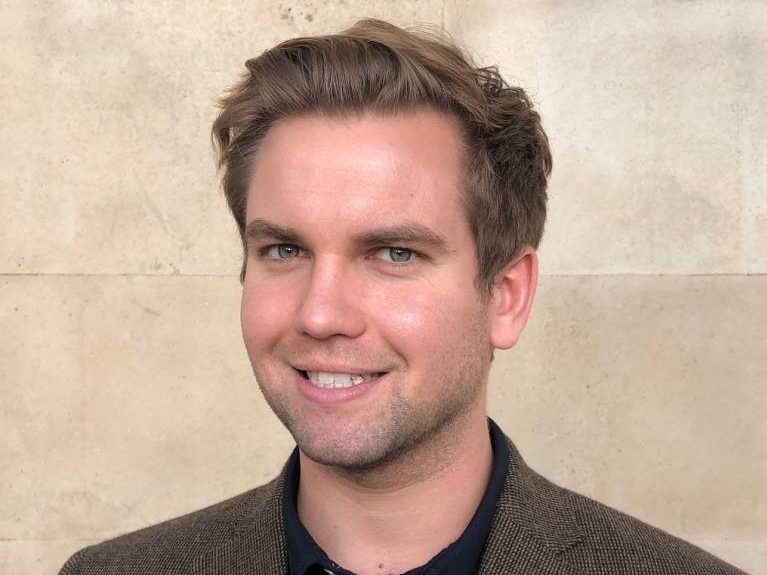Joshua Hollands, lecturer at University College London Institute of the Americas, will be a visiting professor of history at Elon. His teaching will focus on social justice movements in the LGBTQ community in the United States.
Elon University prides itself on being a global institution, having ranked No. 1 in the percentage of students who study abroad for 16 consecutive years. To continue this emphasis on international excellence, Elon will again welcome a faculty member from the United Kingdom to conduct research and teach for the upcoming academic year as part of the U.S.-U.K Fulbright Commission exchange program.
Josh Hollands, a historian of the United States during the 20th and 21st centuries and lecturer at University College London Institute of the Americas, will be a visiting Fulbright Scholar in history and geography at Elon. Most U.K. Fulbright Scholars receive general awards not specifically linked to a U.S. institution, with their time spent primarily on conducting research at large institutions. The Fulbright-Elon University Scholar Award will allow Hollands to focus on teaching at a primarily undergraduate university recognized as a leader in engaged learning, while also conducting research.
“A Fulbright Award at Elon particularly appeals to me due to the university’s strong commitments to engaged and experimental pedagogies,” Hollands said. “My teaching centers on struggles for social justice in the United States, especially movements for lesbian, gay, bisexual, transgender and queer equality, with a focus upon how those sexual minorities’ movements have intersected with race, gender and class,” Hollands added.
The award will also provide Hollands with the opportunity to develop his next major research project which will examine the history of discrimination and activism at Cracker Barrel Old Country Store Inc.
The project, “Discrimination and Activism at the Cracker Barrel Restaurant Chain,” will provide the first comprehensive business history of Cracker Barrel and will trace the shift in discriminatory attitudes at the store and in society overall.
“Furthermore, the project will examine how rights claims, forged in the context of deindustrialization and economic reliance upon service industry work during the 1980s and 1990s, became rooted in battles over the workplace and corporate power to shape the current position of LGBT workers,” Hollands said.
Along with in-class teaching, Hollands said he eager to lead class field trips to nearby resources that would have relevance to the subjects he plans on covering such as UNC-Chapel Hill’s Center for the Study of the American South, Duke University’s David M. Rubenstein Rare Book and Manuscript Library and the Levine Museum of the New South in Charlotte.
During his first semester at Elon, outside of his teaching commitments, Hollands said he will utilize archival collections concerning activism by LGBT, women and African American Cracker Barrel workers and their supporters in the early 1990s.
He estimates that his archival work should be completed by January 2022.
“In my second semester at Elon, and during the break before returning to the United Kingdom, I will conduct several oral history interviews with former and current Cracker Barrel employees, activists, who supported those fired by the company in the 1990s and other authorities on the history of the South in this period,” Hollands said.
The main output of this research will be a book-length monograph to be published by a press with interest in the intersection of business, Southern United States and LGBT history.
“I believe I have a lot to offer the Elon University and the Fulbright Commission in terms of relevant research expertise, engaging pedagogy and cultural sensitivity. However, I also welcome the opportunity that this position offers in terms of a learning experience for myself to be embedded in an intellectually stimulating campus in the U.S. South,” Hollands said. “I would actively seek the opportunity to learn from more established scholars in the History and Gender, Women and Sexuality Studies departments to better my pedagogical practice.”



